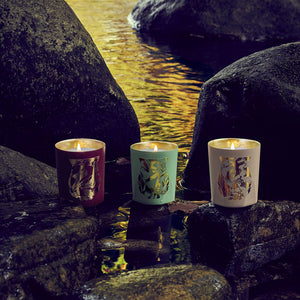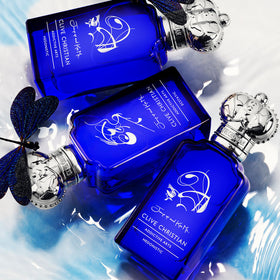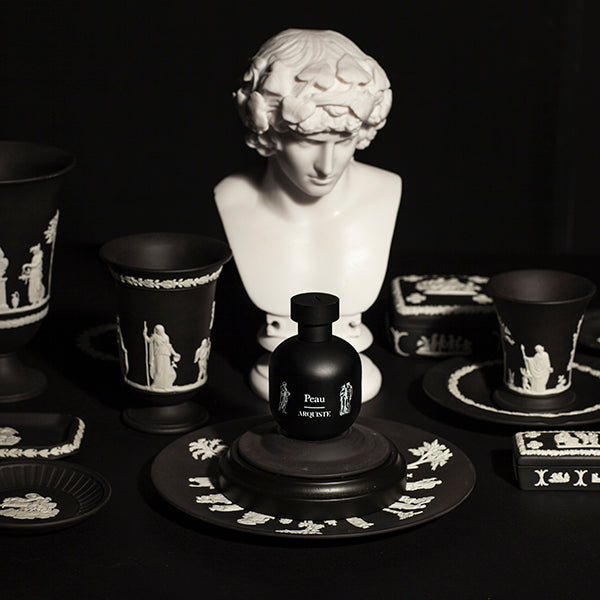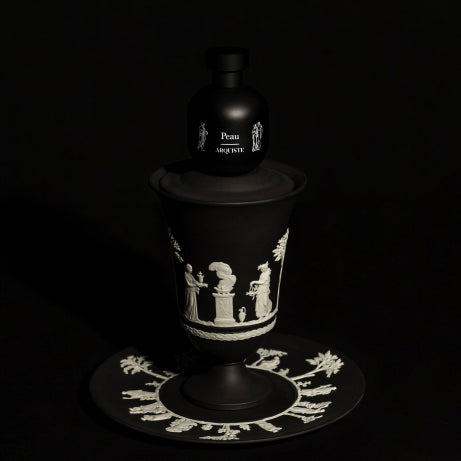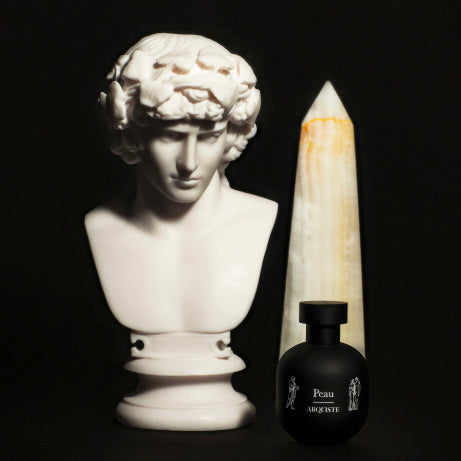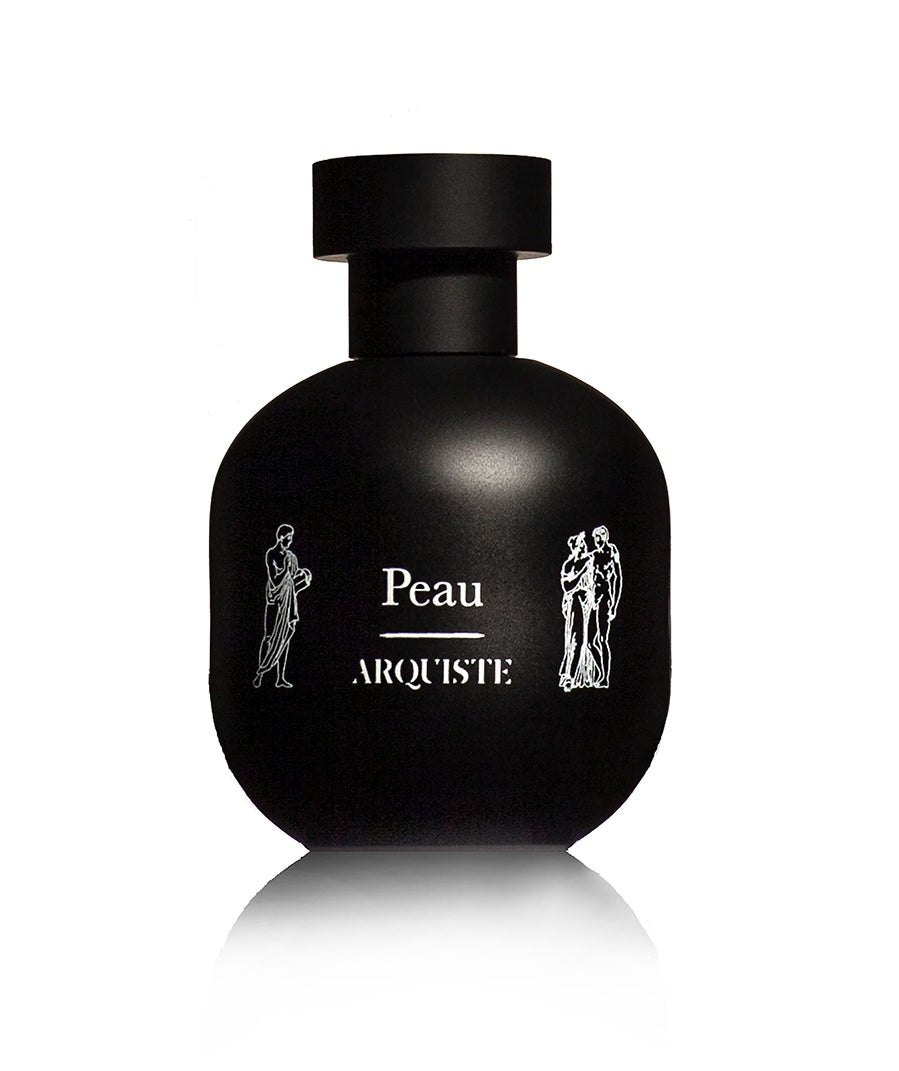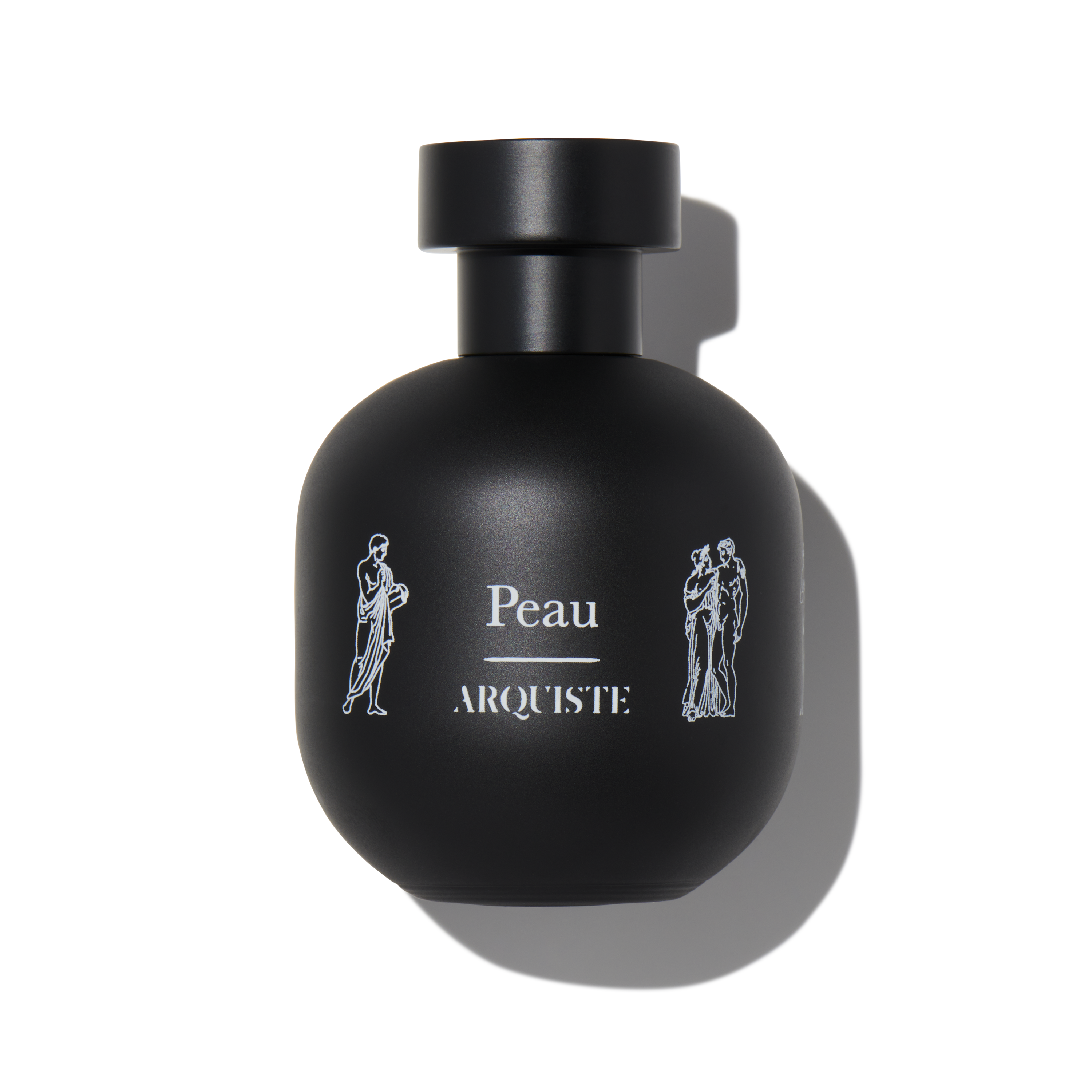
ARQUISTE PEAU 100ml
The nape of the neck, the idealised scent at a lover and a lost embrace. Peau is based on Roman Emperor Hadrian's memories of Antinoös, his lost lover. The soft, salty and musky scent is an evocation of youth and life. From top, heart and base notes, it includes in itself the promise of intimacy and the indescribable memory of skin.
With main notes of: Ambergris, clean musk accord, clary sage, white pepper from India, labdanum derivatives and okoume wood from Gabon.
History
AD 134, Villa Adriana, Tivoli, Italy.
Such was the love emperor Hadrian had for his favourite Antinoös, that he commissioned thousands of sculptures to memorialize him after his demise. Like the contours of a statue, the physical and spiritual presence of the body is likewise defined by a fragrant silhouette. Here is the emperor recalling his lover: the touch and smell of him, the warm redolence of skin, the soft musk at the nape of the neck. Paying tribute to the beloved, like Hadrian did Antinoös, this fragrance captures the memory of skin, conjuring intimacy and closeness, and living in our hearts and minds as an idealized scent.
Developed with Rodrigo Flores-Roux
TOP NOTES
Ambergris accord,
Proprietary musk accord
Clary sage
HEART NOTES
White pepper from India
Coriander seed
Sargassum
BASE NOTES
Leather-like labdanum derivatives
Okoume wood from Gabon
Ambermax
Description
Peau focuses on the tragic love story between Hadrian and Antinoös, allowing us to explore the theme of adoration. Hadrian exalted Antinoös’ image through thousands of statues and portraits, showing us how the antique world defined the spiritual presence in the physical shape of the body. For perfumers, the olfactive memory of skin becomes another tool to idealise and preserve in our memory the contours of physical love.
Eau de Parfum. Large 100 ml / 3.4 fl oz. bottle of the highest Italian quality with our signature ‘A’ engraved metal cap, as well as the newest technology for an invisible spray tube.
More research
- An Imperial romance: The reign of emperor Hadrian (ruled AD 117-38) was marked by military campaigns and building projects, including the famous wall across the north of England at the edge of the Roman Empire. Hadrian had married into the imperial family, but in his late forties he met a Greek youth named Antinoös (or Antinous) from Bithynia, now in modern Turkey, possibly during a tour of the province in AD 123. The young ephebe became the emperor’s lover. During an imperial tour of Egypt in AD 130 according to an ancient biography:
“while he was sailing on the Nile he lost his Antinoös, for whom he wept like a woman. About this there are several rumours, some claiming that he had devoted himself to death for Hadrian’s sake, other’s claiming what his physique and Hadrian’s sensuality suggest (i.e. that he was growing too old for the emperor’s desire).
Hadrian founded a city called Antinoopolis at the place where his lover died, and made him into a god- an honour usually reserved for member’s of the emperor’s family. Hadrian publicly commemorated Antinoös in huge numbers of statues, figures, portraits and coins across the known Roman world, an almost unparalleled memorial to a lost love.
- Against pessimism, the virtue of melancholy lies in defining a memory against the “dark void”. A memory can be compared to a portrait defined in our mind like the fine lines of shapes and figures against an opaque background. The memory of a loved one, of their skin, of an idealised memory or experience, remains in our minds longer than the actual material body it evokes. This is also the memory of something lost. In the Antique world, the spiritual world takes the shape of man: preserving the contours of its physical presence, i.e. the human body, is the only way to memorialise it through the passing of centuries.
- PEAU is the olfactive restoration of the human body, a subliming epitaph through our sense of smell. It’s soft cruelty lies in its evocation of youth, thus life, which by nature is impermanent. From top, heart and base notes, it includes in itself the fullest promise the full spectrum of life, from beginning to end.




